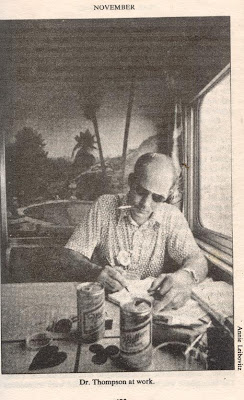Occasionalism--Godly, and not-so-Godly.""""[Malebranche's] Occasionalism is the doctrine that all finite created entities are absolutely devoid of causal efficacy and that God is the only true causal agent. God is directly, immediately and solely responsible for bringing about all phenomena. When a needle pricks the skin, the physical event is merely an occasion for God to cause the appropriate mental state (pain); a volition in the soul to raise an arm or to think of something is only an occasion for God to cause the arm to rise or the idea to be present to the mind; and the impact of one billiard ball upon another is an occasion for God to move the second ball. In all three contexts - mind-body, mind alone and body-body - God's ubiquitous causal activity proceeds in accordance with certain general laws, and (except in the case of miracles) he acts only when the requisite material or psychic conditions obtain."""
Malebranche's doctrine may sound strange or mystical, but we contend that ANY orthodox monotheist, whether christian, jewish or muslim, must uphold Occasionalism in regards to all events, physical or mental. Even if efficient causes exist (as they do), and natural laws seem to hold, the Believer must grant that God is "the only true causal agent". Thus, theistic Occasionalism implies contingency, in a sense. God would by definition know all, command all, at all times, and everywhere. Assuming He existed, He could, if He so desired, simply reverse Newtonian physics, and have a plane fall from the sky. He could also create miracles, by definition. Yet planes don't fall, and miracles don't seem to occur, at least on macro-level. The typical theist, at least the thinking one, may allude to continuity of a sort, or say something regarding regularity, or Design, possibly a Final Cause, read instrinsically: "The rose bush always produces roses, not marigolds, or the heads of snakes. Planes fly according to those sacred Newtonian constants. There is order, which is Godly", he says. Aristotle, and Ibn Rushd, perhaps even Deists might actually agree to that--Descartes and Malebranche would not.
At the same time, God or spiritual forces do not appear to intervene during various types of nightmares--say world war, or plagues. God could have, granting the occasionalist premise, prevented trench warfare, or panzer divisions: that is assuming He thinks he made a mistake, yet Occasionalism also implies God can change His mind. But he chooses not to. Some believers insist, of course, that God does create miracles, and indeed intervene. Prayer is commonly accepted as legitimate, as bringing about change. Prayers did not stop trench warfare, however (and certainly many mothers did pray for their soldier sons). Per the law of excluded middle, it must be that miracles are possible, or they are not possible. If we grant they are possible, then it would seem an omnipotent, just God would intervene during horrible events, such as war. Yet the only time God does create miracles, they appear to be of the mystic, and somewhat trivial sort (appearance of Mary, bleeding statues, perhaps a person coming back from near-death experience etc). So God, if he can create miracles, only chooses the trivial (at least over last few centuries), and does not offer the biblical sort. And the reports of even "trivial miracles" could be mistaken testimony, or unreliable, ie bogus. Thus, that would confirm God either does not exist, OR is an amoral force: assuming He existed, He chooses to produce bleeding statues (supposedly, ie maybe), but not angels stopping panzer divisions, or preventing stalinists' from killing Kulaks.
Ergo, an omnipotent, Just God probably does not exist, since no miracles occur during horrible events or atrocity, though by definition at least, and per Occasionalism, he could bring about miracles. Barring belief in a tyrannical or demonic force, an omnipotent God most likely does not exist, and Malebranche was in error. An impersonal, non-spiritual Nature, not God, is "the only true causal agent". Many religious, and non-religious thinkers have rejected the possibility of miracles--whether of the bible, or occurring in ordinary reality. As Wl Craig says, "Voltaire's God, indeed the God of all Deists, was the cosmic architect who engineered and built the machine, but who would not be bothered to interfere in the trivial affairs of man. In this light miracles simply became unbelievable." That may be, but by doing so, doesn't Voltaire also reject the very possibility of an Omnipotent God? It would seem so (and having read Candide, I am quite sure Voltaire did intend that). Deny the possibility of miraculous intervention, and you thereby deny the possibility of a God.








